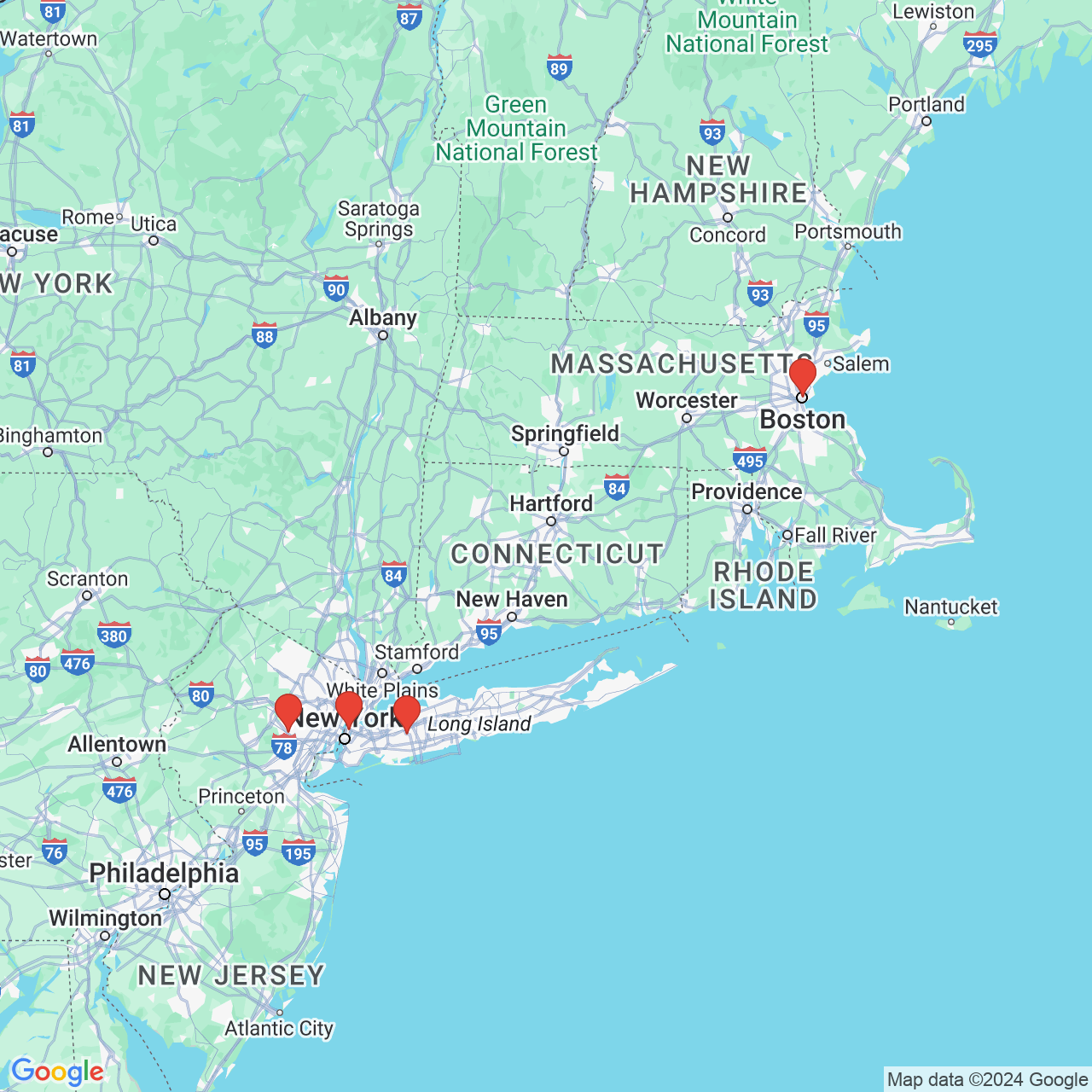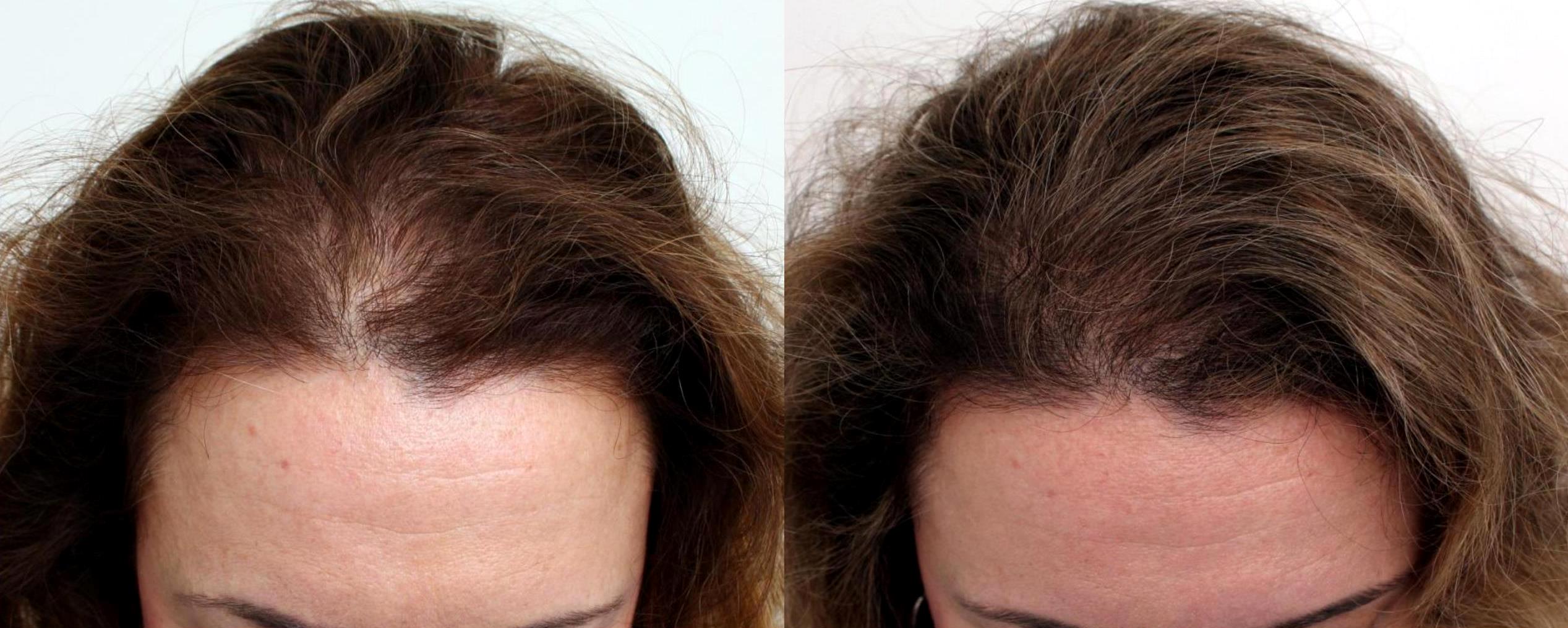
HAIR LOSS IN WOMEN
Hair loss in women is much more common than people think. About 30 million women in the U.S. have thinning hair.
Fortunately, neither men nor women have to live with hair loss. There are solutions that can restore your hair and your confidence.
Dr. Robert J. Dorin & Dr. Robert True (Emeritus) serve Greater NYC & Boston by providing treatment(s)* tailored to your condition and needs.
Common Causes of Hair Loss in Women
There are many causes of hair loss that are unique to women. Women might lose their hair about three months after giving birth and after discontinuing birth control pills, but this typically reverses after about six months. Another cause of female hair loss is excessive estrogen. Other causes of hair loss in women include:
- Anemia
- Anorexia
- Bulimia
- Burning scalp syndrome
- Chronic telogen effluvium
- Chemotherapy
- Diabetes
- Heredity
- Hormonal imbalances
- Menopause
- Overstyling
- Physical injury
- Polycystic ovary syndrome (PCOS)
- Protein deficiency
- Psoriasis
- Rapid weight loss or gain
- Seborrhea
- Stress
- Sudden shock
- Telogen effluvium
- Tight braiding
- X-rays
What We Can Treat
As a practice, we strive to help every patient by creating a customized hair loss solution that solves your hair loss problems. We can likely help you if your hair loss is due to:
- Traction Alopecia
- Angular Alopecia
- Localized Thinning Patterns
- Receding Hairlines
- Plastic Surgery Revisions
What We Cannot Treat
At The Hair Loss Doctors By Robert J. Dorin Clnics in NYC and Boston, we will be honest with you about your hair loss treatment options, and if your female hair loss is caused by anything other than what is listed above, we will not be able to assist you due to the lack of current hair loss treatment options.
The Hair Loss Doctors cannot restore hair for women who have suffered hair loss caused by:
- Hair Breakage
- Diffuse Unpatterned Alopecia (DUPA)
- Hair Loss Due to Medical or Metabolic Issues, including:
- Hypothyroidism
- Hyperthyroidism
- Iron Deficiency Anemia
- Telogen Effluvium
- Medication Side Effects
- Active Scarring Alopecia
Schedule Your In-Person or Online Consultation Today
If you are unhappy with the state of your hair, you are not alone. Many women experience some degree of hair loss as they age. Thanks to modern hair transplant technology, many cases of hair loss do not have to be permanent.
We invite any women who are curious about hair transplants to schedule a virtual or in-person consultation with our medical team today. With three hair loss clinics in the greater New York area and one in Boston, we are always ready to welcome new patients and provide information on various hair restoration treatments.
You can schedule a consultation with The Hair Loss Doctors℠ By Robert J. Dorin by filling out our consultation request form or calling our New York headquarters:

"I would highly recommend Dr Dorin and his team!" Why Patients in Greater New York Choose Us
Dr dorin & his staff are incredibly great!!! I had an fue procedure done with them, and no complaints everything went according to planned. Reasonably priced. I would highly recommend Dr Dorin and his team! Thank you for the great work!
View on GoogleIf you are apprehensive about have this procedure done, this is the place to go.. you will be made to feel at home and relaxed from the minute you arrive..speaking with Dr. Dorin was more like talking to old friend who was more interested in my well being than making a buck.
View on GoogleNonscarring vs. Scarring Alopecia
Nonscarring
| 1. Primary Skin Disorders | Description |
| Alopecia Areata | Usually patchy, sometimes diffuse totally bald areas. |
| Androgenetic Alopecia | Male and female pattern baldness. |
| Telogen Effluvium | Hair loss after pregnancy and childbirth, high fever, rapid weight loss (naturally or after bariatric surgery) and drugs. |
| Tinea capitis | Fungal infection of the scalp. |
| Traumatic Alopecia | Traction alopecia from constant tight braiding, overstyling, chemical relaxers, etc. |
| 2. Systemic Diseases That Can Cause Hair Loss | Description |
| HIV infection | Hypopituitarism |
| Hypothyroidism | Systemic Lupus Erythematosus |
| Hyperthyroidism | Secondary Syphilis |
| Vitamin Deficiency | Deficiency of Vitamin B, Protein, Biotin, Iron, Zinc |
| 3. Trichotillomania | An obsessive-compulsive disorder causing self-inflicted hair pulling resulting in hair loss. |
Scarring
| 1. Primary Skin Disorders | Description |
| Cutaneous Lupus | Causes red, scaly rash |
| Folliculitis Decalvans | Chronic inflammation of the scalp |
| Idiopathic Pseudopelade of Brocq | Alopecia patches |
| Lichen Planus | purplish, flat-topped bumps |
| Morphea | Hardening and discoloration of the skin |
| Traumatic Alopecia | Chemical burns |
| 2. Systemic Diseases Leading To Hair Loss | Description |
| Lupus Erythematosus | Most common type of Lupus, permanent hair loss |
| Skin Metastases | Growth of cancer cells, causing hair loss |
| Sarcoidosis | Small patches of red and swollen tissue |
DHT and Hair Loss
/
Dihydrotestosterone (DHT) is a hormone byproduct of testosterone present in both men and women. In cases of female hair loss, DHT causes a slow thinning of the hair on top of the head over many years (however, the hormonal mechanisms for female pattern baldness involve more than DHT and are still under investigation). Loss of estrogen after menopause adds to this effect.
Since men have considerably more DHT than women, our doctor (serving Greater NYC, NY and Boston, MA) presumes this to be the reason for the more rapid progression of alopecia noted in our male patients.
A Closer Look at Pregnancy-Related Hair Loss
During and after pregnancy, your body will undergo substantial changes. One of these changes often includes hair loss that may result in different degrees of shedding. While shedding is often alarming, it is only temporary for most women. Here are answers to frequently asked questions about hair loss and pregnancy:
What causes postpartum alopecia?
Estrogen plays an integral role in hair growth, so many women experience an extra thick head of hair during pregnancy followed by hair loss several months after giving birth.
What can I expect?
About three to four months after giving birth, many women experience hair loss. This can occur all over the head or in concentrated clumps around the center. While the condition may resemble androgenetic alopecia, or pattern balding, the effects are only temporary for many women. Within six to 12 months, average hair growth is usually restored.
How can I manage it?
We can provide patients with various resources for dealing with hair loss after pregnancy. There are several options for managing postpartum alopecia, including:
- Changes in behavioral habits
- Concealing thinning
- Hair restoration procedures
- Medication, such as minoxidil, to stimulate hair growth
Explore Your Treatment Options
Our dedicated doctor serving Greater NYC, NY and Boston, MA has the resources and advanced treatment options you need to help you overcome postpartum hair loss.
In the case of permanent postpartum hair loss, we have diverse treatment options specifically tailored for women's needs. Dr. Robert J. Dorin can recommend a prescription, procedure, or combination of treatments that will help to restore your hair to a thick, healthy-looking state.
Call us today to request an in-person or online consultation:
(516) 214-6776
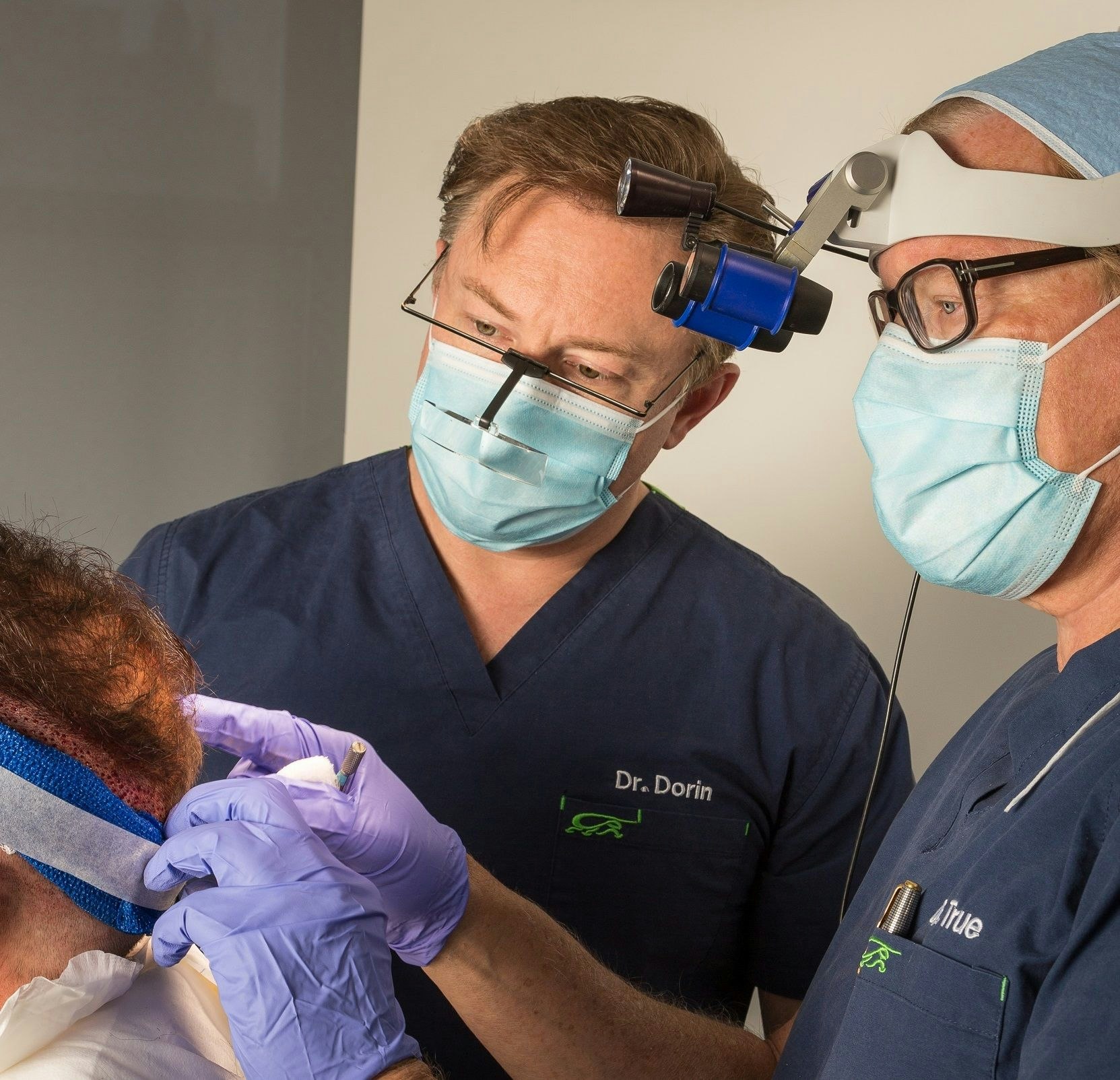
While postpartum hair loss is usually temporary, for some women, it can evolve into a progressive and permanent condition.
Before and After Hair Loss Treatment
See the The Hair Loss Doctors By Robert J. Dorin Difference
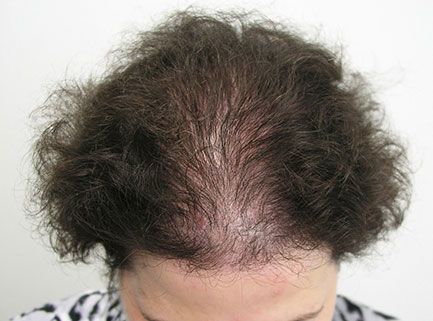
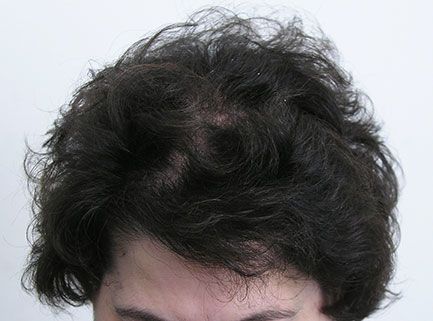
PCOS-Related Hair Loss
Polycystic Ovary Syndrome (PCOS) is a condition that affects about 10% of women of reproductive age. PCOS is characterized by the development of many small cysts on the ovaries. While these growths are not directly harmful to a patient's health, they disrupt hormonal balance, causing many different complications.
PCOS And Hormone Production
PCOS is an endocrine disorder that is typically diagnosed by ultrasound. The cause is unknown. The ovaries usually produce only a small amount of androgen, which triggers the production of other hormones. PCOS patients produce excessive androgen, which may cause hair loss and other symptoms, including:
- Acne
- Depression
- Fertility problems
- Irregular periods
- Weight gain
Hair Loss In PCOS Patients
Hair loss related to the effects of androgen in PCOS patients is called androgenic alopecia. Typically, patients will first notice a thinning of the hair at the crown of the scalp or an excess of hairs lost after washing or combing.
If you are suffering with PCOS and hair loss, we can determine a solution to restore your hairline and help you feel confident and attractive.
Is Menopause Causing Your Hair Loss?
Some women will notice slower hair growth and increased shedding in the years leading up to menopause. Although most will experience more dramatic thinning afterward, it is not uncommon for hair loss and thinning to occur beforehand as well. During both perimenopause and menopause, estrogen levels will dramatically decrease while the effects of androgens increase. This combination can result in failing hair follicles, which in turn leads to female pattern hair loss (FPHL).
Discover A Treatment That's Right For You
Request a Consultation
Although your primary physician may recommend medications to improve the effects of menopause, these may not be sufficient to prevent hair loss. Fortunately, we can deliver safe and effective hair regrowth with hair restoration technology and techniques. Our doctor combines surgical, nonsurgical, and medicinal treatments (such as minoxidil) to help women achieve hair growth. We can provide personally tailored treatments to meet your unique needs.
Call to request an online or in-person consultation at one of our hair loss clinics in the Greater NYC, NY and Boston, MA areas:
(516) 214-6776
GET YOUR HAIR AND CONFIDENCE BACK! Receive Personalized Results
Our Greater NYC headquartered practice is recognized as a global leader in hair restoration treatment because we consistently achieve excellent outcomes using surgical, nonsurgical, and medicinal treatments, like minoxidil. Our goal is to help all of our patients achieve the hairline and confidence that they deserve.
You can schedule your in-person or online consultation at one of our clinics serving Greater NYC and Boston today by calling us:
(516) 214-6776
Before and After Hair Loss Treatment See the The Hair Loss Doctor Difference
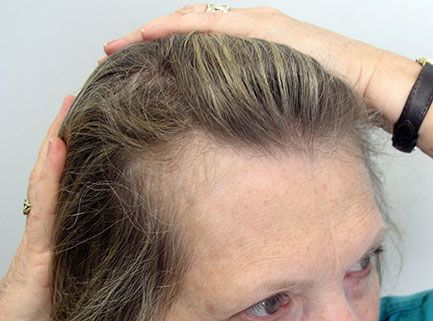
A Closer Look at Traction Alopecia
What causes traction alopecia?
Traumatic alopecia is unique compared to other hair loss conditions since it's caused directly by the patient. The condition often develops due to prolonged tension on the hair, which can lead to inflamed follicles or hair that has completely detached from the root. This tension is commonly caused by:
- Chemical straightening treatment.
- Hairpieces and weaves that rely on the hair for security.
- Headgear such as helmets.
- Tight hairstyles such as braiding, rollers, or ponytails.
What are the symptoms?
As damage escalates, hair will begin to fall out or become sparse. Typically, this will happen more quickly around the hairline or behind the ears. However, depending on your habits, it can also occur at the crown of the scalp. Common warning signs that you may be causing excessive tension and damage to your hair follicles include:
- A scalp that is sensitive to the touch when you take your hair down.
- Itchy scalp when wearing braids or a weave.
- The need for painkillers for a headache caused by a tight hairstyle.
How do I prevent further damage?
You can prevent traumatic alopecia by actively avoiding specific hairstyling techniques or lifestyle habits. If you are committed to preventing the effects of traumatic alopecia, you can stop hair loss and, in some cases, restore your hair naturally without the use of medication like minoxidil.
Our hair loss clinics serving Greater NYC and Boston, MA is dedicated to helping our patients achieve a natural-looking, full head of hair. We can help you develop a plan to properly manage your condition.




